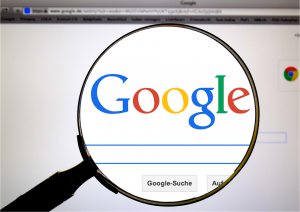
Achieving the Dream of an Anonymous Internet
March 06, 2018
Everybody wants to achieve the dream of an anonymous internet. The Internet is a lot of things. It’s a powerful tool for research, generates billions of dollars each year. Also, a fantastic place to meet people all over the world.
What it is not is private. Every day, people unknowingly offer up an abundance of personal information about themselves. Information that the wrong people can use against them — without even thinking of the consequences.
However, the Internet can be a safe place to work, play, and socialize if you know the steps to take to safeguard your privacy. Here is how you can search for information, use email services and social media. While protecting your identity and safeguarding against hackers, advertising practices, and nosey government agencies.
Secure Browsers and Search Engines

Much of the information advertisers (and potentially government agencies like the NSA) gather from individuals comes through Internet searches. Not only does your browser keep a log of all your searches, it stores cookies that can also be used to track your online activities. The search engines store additional information, mainly for advertising purposes.
Chrome browser has a privacy function that allows you to browse privately, and you can also choose to do anonymous Google searches. Or, convert to a private search engine like Duck Duck Go, which is quietly gaining in popularity. There is also an add-on tool that offers an additional layer of privacy called SearchLock. Web searchers, SearchLock is the anonymous browsing tool that offers anonymous internet surfing that’s easy to set up.
Secure Email Services

Email is not private, nor is it secure. The technology that allows us to conveniently use email for personal and business communications was never designed with security. It was developed before anyone foresaw how email would eventually be used. As a tool to communicate sensitive information to our families, banks, employers, and friends.
Have you ever wondered how Yahoo!, Gmail, Hotmail, and others can offer valuable tools like email service for free? It’s because they use that information for advertisers. They track your online activities and email communications to target you with ads for products and services you’re interested in.
When it comes to private emails, Forbes recommends ProtonMail. It is the only known email service that cannot be traced or cracked by the NSA. If the NSA can’t access your emails, it’s unlikely hackers or identity thieves, or predatory advertisers can either.
Secure Social Media Use

Social media presents some of the most problematic issues when it comes to safeguarding your privacy. Most people don’t understand all of the privacy options available, and commonly post information that can end up in the wrong hands. For instance, if you posted the dates of your last vacation. You alerted thousands of potential thieves of when your home would be most vulnerable to attack. Even sharing your birthday can be valuable fodder to identity thieves.
Take a few minutes to change the privacy settings of your social media accounts. For Facebook, go to Account and select Settings. Then go to Privacy settings and edit each field for the maximum security. Set the option that disallows search engines to spider crawl your posts. Do this process for each of your social media accounts. When sharing posts, don’t ever mention anything, such as your children’s schools, your travel plans, and expensive purchases you make.
The Internet can be a private, safe place, but you have to take certain measures to make it so. Don’t assume that antivirus software and a firewall is all you need to safeguard your privacy.
Sources:
20 Best Tips to Stay Anonymous and Protect Your Online Privacy
HOW TO ANONYMIZE EVERYTHING YOU DO ONLINE
The Only Email System The NSA Can’t Access
How to Stay Anonymous Online